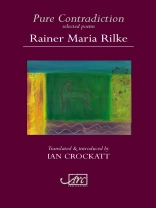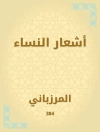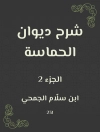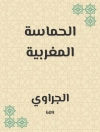‘Not a poet, but the embodiment of poetry.’
Maria Tsvetaeva
Rainer Maria Rilke's work spans the divide between the decadence of early 20th-century Europe and the modernist revolution that followed the First World War – always struggling to develop, to seek and reach beyond itself.
This selection brings together poems from throughout Rilke's career, placing poems of similar themes close to one another, making bed-fellows of poems rarely seen together, and catching Rilke's blend of crafted sensuality and spiritual searching.
‘Along with Charles Baudelaire, Rilke is the foremost poet of the erotic from the nineteenth and early twentieth centuries. But there is much more to Rilke's poetry than eroticism… Rilke was nothing if not ambitious with his poetic vision.’
Raymond Humphreys
‘New translations of Rainer Maria Rilke must always be welcome… The power of this poetry is to a great extent in its new angles, but, more important routes to new depths.’
Stella Stocker, Weyfarers
Rainer Maria Rilke (1875-1926) witnessed the radical new art emerging in Paris before the First World War, meeting Rodin, Picasso and Tolstoy and many other artistic giants of the time. Together with letters and his novel The Notebooks of Malte Laurids Brigge, Rilke's poetry constitutes one of the great literary achievements of the 20th century.
Ian Crockatt is a Scottish poet. His Original Myths (Cruachan, 2000) was shortlisted for the Saltire Society's Scottish Book of the Year Award in 2000.
This book is also available as a e Book. Buy it from Amazon here.
Giới thiệu về tác giả
Rainer Maria Rilke was born into the German-speaking elite of Prague in 1875, and died in Switzerland in 1926. He was witness to the radical new art emerging in Paris before the First World War and was involved in reviewing exhibitions and writing articles about the new artists, as well as developing his own increasingly individual and virtuoso verse. He was secretary to the sculptor Rodin for two years, met Picasso and Tolstoy and many other giants of the artistic and intellectual community of the time. He lived a semi-nomadic life, always putting his art before his personal relationships and always aware of his own calling as a poet. Today his reputation is as high as it was during his lifetime; his Duino Elegies, Sonnets to Orpheus and his two volumes of New Poems which sounded a new note in European poetry at the time remain landmark works. Together with his volumes of letters and his extraordinary impressionistic novel The Notebooks of Malte Laurids Brigge, Rilke’s poetry constitutes one of the great literary achievements of any century.












